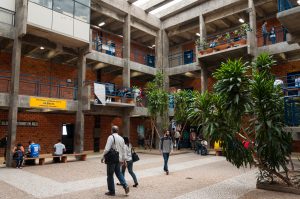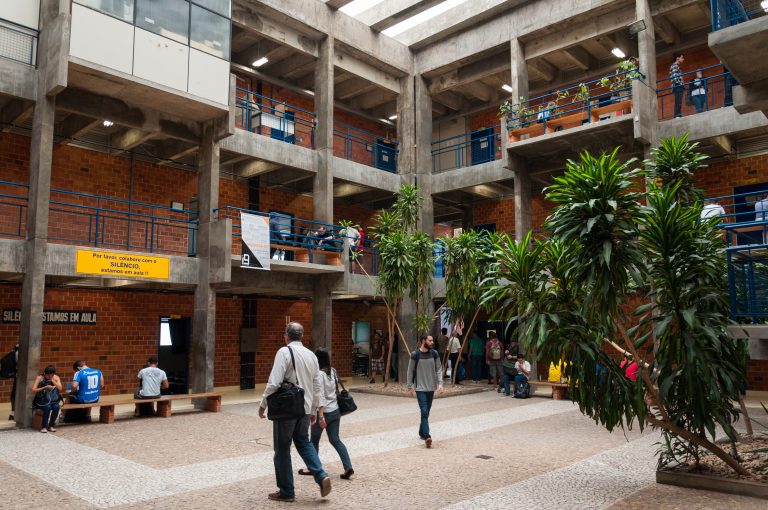 The undergraduate degree in Rural Education was implemented in Brazil in 2006. Today, more than forty federal universities across the country offer this teaching degree (licenciatura).
The undergraduate degree in Rural Education was implemented in Brazil in 2006. Today, more than forty federal universities across the country offer this teaching degree (licenciatura).
The program focuses on teacher education with a commitment to ensuring that rural communities receive an education tailored to their unique context. It recognizes the right of individuals living in rural areas to access a curriculum that integrates their local context with historically produced knowledge. This means that education should not only be available in rural areas but should also be specifically designed for those environments, involving the active participation of local residents and addressing their cultural, human, and social needs.
Education here encompasses more than just the school setting, but school is viewed as a key element in the strategy to ensure the right of rural populations to Basic Education. Rural populations include “small family farmers, extractivists, artisanal fishermen, riverside dwellers, land reform settlers and campers, rural wage workers, forest peoples, quilombolas, caiçaras, caboclos, and others who produce their material conditions of existence from work in rural areas” (BRASIL, 2010).
EduCampo at UFSC
At UFSC, the Undergraduate Program in Rural Education (EduCampo) was created in 2008, integrating the activities of the Rural Education and Sustainable Territorial Development Institute (EDUCAMPO Institute) at the School of Education (CED). Since its inception, the program has formed partnerships with rural organizations and social movements in the State of Santa Catarina.
The program aims to prepare secondary school teachers and educators specialized in Natural Sciences and Mathematics or in Human and Social Sciences, delivering political and pedagogical training grounded in the principles of Rural Education. Graduates will be committed to integrating the school with the rural community and society in general, and to promote transformative practices in the teaching and learning process. Additionally, they may engage in the development and implementation of local sustainable development projects centered on agroecology.
The program operates according to the principles of the Pedagogy of Alternation, meaning that it is organized into a Community Time (CT) and a University Time (UT). During UT, students engage in curricular activities at the university, while during CT they carry out activities in their communities, such as diagnostic activities, teaching internships, and community projects for school-community integration, depending on their stage in the program. This integrated educational approach aims to combine the students’ real-life experiences within their communities with the academic knowledge gained through their higher education.
In the first year of the program, both University Time (UT) and Community Time (CT) activities are centered around investigating the local reality. In the second year, the focus shifts to studying rural schools. During the final two years, CT involves supervised internships in rural schools, enabling students to gain hands-on experience teaching Natural Sciences (Biology, Chemistry, Physics) and Mathematics or Human and Social Sciences at the lower and upper secondary education levels.
In addition to providing access to knowledge in the specific subject areas, the Rural Education teacher training emphasizes the importance of understanding the memory, knowledge, values, customs, and social and productive practices of rural community members and family farmers. Additionally, the program encourages students to analyze the sociocultural and environmental characteristics of their life territories, fostering a deep understanding of the existing conflicts and contradictions. This training also involves developing the theoretical and practical skills necessary to envision, organize and create a rural basic school that offers a critical and creative education, committed to the principles of building socially sustainable alternatives within rural territories.
Program Length:
8 semesters (4 years) |
| Website: educampo.grad.ufsc.br/ |
| Classes may be held in the morning, afternoon and evening. |
Note: this program requires a separate entrance examination. Visit the program’s website for information on the application deadlines and procedures.






 The undergraduate degree in Rural Education was implemented in Brazil in 2006. Today, more than forty federal universities across the country offer this teaching degree (licenciatura).
The undergraduate degree in Rural Education was implemented in Brazil in 2006. Today, more than forty federal universities across the country offer this teaching degree (licenciatura). The primary challenge for a mechanical engineer is to analyze, design and solve problems in the traditional areas of Mechanical Engineering, such as manufacturing, automation and robotic processes, thermal systems and mechanical systems. Mechanical engineers also work in an interdisciplinary way in other areas of engineering: aerospace, automotive, naval, ocean, chemical, environmental, metallurgical, petroleum, materials, among others.
The primary challenge for a mechanical engineer is to analyze, design and solve problems in the traditional areas of Mechanical Engineering, such as manufacturing, automation and robotic processes, thermal systems and mechanical systems. Mechanical engineers also work in an interdisciplinary way in other areas of engineering: aerospace, automotive, naval, ocean, chemical, environmental, metallurgical, petroleum, materials, among others. The UFSC Mathematics program aims to develop professionals who are able to reflect on mathematical concepts, develop new theories and demonstrate results to advance scientific knowledge.
The UFSC Mathematics program aims to develop professionals who are able to reflect on mathematical concepts, develop new theories and demonstrate results to advance scientific knowledge. Created in 2014 on the Blumenau Campus, the Mathematics program with an emphasis on Mathematics Education (licenciatura) aims to prepare students for a career in teaching in secondary schools. It also provides them with the necessary knowledge of the fields of research in Mathematics for furthering their studies at the graduate level.
Created in 2014 on the Blumenau Campus, the Mathematics program with an emphasis on Mathematics Education (licenciatura) aims to prepare students for a career in teaching in secondary schools. It also provides them with the necessary knowledge of the fields of research in Mathematics for furthering their studies at the graduate level. The Materials Engineering program (Blumenau Campus) qualifies engineers based on: 1) theoretical training, 2) practical training, 3) character building, 4) employability, 5) student satisfaction level, and 6) cost-benefit ratio, through a cooperative model built along the lines of the
The Materials Engineering program (Blumenau Campus) qualifies engineers based on: 1) theoretical training, 2) practical training, 3) character building, 4) employability, 5) student satisfaction level, and 6) cost-benefit ratio, through a cooperative model built along the lines of the  The UFSC Materials Engineering program on the Florianópolis Campus was established in 1998 and has graduated more than 800 materials engineers until today.
The UFSC Materials Engineering program on the Florianópolis Campus was established in 1998 and has graduated more than 800 materials engineers until today.